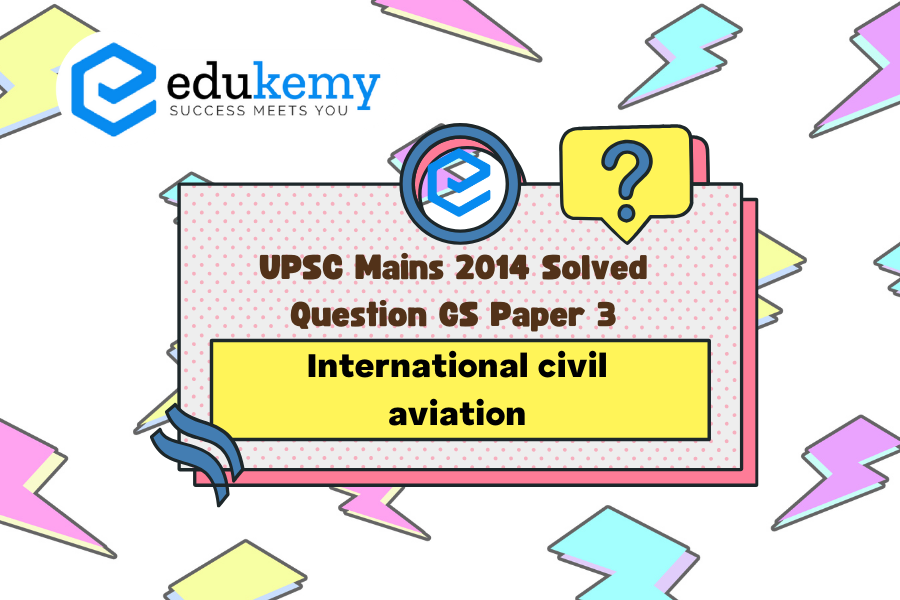International civil aviation laws establish the principle that each nation possesses complete and exclusive sovereignty over the airspace above its territory. Airspace, in this context, refers to the portion of the atmosphere that lies above a country’s land and water territory, including its territorial sea. It extends vertically, encompassing the airspace from ground level upwards into outer space. This definition encompasses both controlled airspace, managed by air traffic control authorities, and uncontrolled airspace, typically found in remote or sparsely populated areas.
Contents
Decoding the Question:
- In the intro try to define air space.
- In Body,
- Discuss laws regarding air space and implications of these laws on space above this air space
- In the second part of the answer, discuss the challenges and measures to contain these challenges.
- Try to conclude the answer towards peaceful and harmonious usage of global commons.
Answer:
Air space in international law refers to the space above a particular national territory, as is considered as belonging to the government controlling the territory. It does not include outer space, which is governed by the Outer Space Treaty of 1967. It gives the country legal right to use this space as it deems fit and protect it from any transgressions using any means it deems fit.
Implication and challenges with respect to Space above the air space:
- Outer space is a zone beyond air space surrounding earth. The Outer Space Treaty defined outer space, but it has not drawn an exact line to differentiate between outer space and air space. This undefined air space leads to uncertainty and issues between countries. These uncertainties are potential risks of conflicts between countries and become serious threats to international peace.
- Every country has its own air space limits. For example, the USA defined their outer space boundary as 100 KM limitations. This has become an issue between The USA and Canada as many times US astronauts intruded into Canadian airspace without any permission.
- Technologically advanced and developed countries are already weaponizing outer space.This poses a serious threat to the national security of any nation.
Measures to Contain this Threat:
- International Treaty: The immediate requirement is to sign an international treaty and make binding laws which will distinguish between air space and outer space equally for all the countries.
- International Monitoring Agency: Under the United Nations there is a need for an institutional mechanism to monitor and settle disputes regarding airspace violations and settle disputes amicably.
- Amendments in Outer Space Treaty: It has been criticized that the outer space treaty has failed to deter weaponization of outer space. This competition for weaponizing outer space will destroy the heritage of mankind that is outer space, which is meant to satisfy scientific curiosity.
Hence, unregulated airspace is a serious global issue which needs to be addressed as early as possible to reduce future global conflicts by defining outer space and airspace of each country. Airspace and outer space should be used for mankind’s progress and prosperity but not for flexing muscles.
In case you still have your doubts, contact us on 9811333901.
For UPSC Prelims Resources, Click here
For Daily Updates and Study Material:
Join our Telegram Channel – Edukemy for IAS
- 1. Learn through Videos – here
- 2. Be Exam Ready by Practicing Daily MCQs – here
- 3. Daily Newsletter – Get all your Current Affairs Covered – here
- 4. Mains Answer Writing Practice – here


